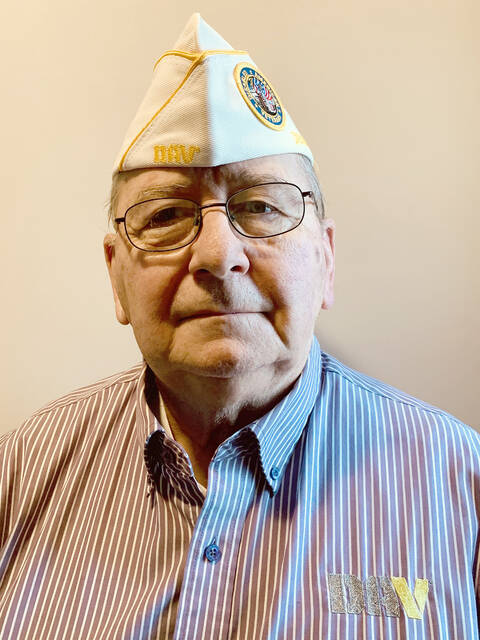On July 4, 2025, President Donald Trump signed the One Big Beautiful Bill Act (OBBBA) into law. This nearly 1,000-page enacted legislation is anticipated to cause sweeping financial and social changes across the United States.
A majority of the newly enacted law focuses on budget allocations and will affect most of the United States’ population.
Of this massive legislative law, according to the experts, two (2) aspects have negative impacts on veterans. They are: the reduction in Medicaid spending and the elimination of Supplemental Nutritional Assistance Program (SNAP) work exemptions.
Normally, we do not think of veterans being impacted by the reduction in Medicaid health insurance or receiving SNAP benefits. However, that is not the case for all veterans.
Medicaid is the federal program that provides health insurance to low-income people and families.
Most people believe that veterans have all their health care provided by the Department of Veterans Affairs (VA). The public understands that over one (1) million veterans have enrolled in VA healthcare system since the PACT Act was enacted.
However, although nine (9) million veterans are enrolled in the VA health care system, there are eighteen (18) million veterans in the United States. This means that only fifty (50%) percent of veterans are covered by the VA healthcare system.
The other nine (9) million veterans rely to some degree on outside insurance to cover some of their medical needs as well, including Medicaid.
According to 2023 projections, approximately ten (10%) percent of all veterans were enrolled in Medicaid, including five (5%) percent of VA enrollees.
If these projections are accurate, then nearly two (2) million veterans during 2023 relied partially or entirely on the Medicaid program for health coverage.
According to the Congressional Budget Office (CBO), the Medicaid’s changes could result in as many as 7.6 million people losing Medicaid health insurance over the next decade.
There is no projection from the CBO on how many veterans on Medicaid could be those veterans’ losing coverage, but the law will cut over one (1) trillion dollars by 2034.
The loss of Medicaid funds paying for patient care, hospitals, and other medical facilities will face steep declines in the amount of money they have to operate.
This reduction may lead to downsizings, reductions in staff and services, and possibly even closures of installations, thus limiting healthcare access for both insured and uninsured veterans.
Currently, the OBBBA will eliminate $267 billion in federal spending for SNAP. The program provides food assistance to approximately 42 million people. It would also impose work requirements on those age 55 to 64 who benefit from the program.
Current SNAP eligibility requirements require not only that an individual or household make below a certain amount of money, but that anyone between the ages of 16 and 59 must work at least 30 hours per week.
Certain people are exempted from that work requirement, such as veterans, the disabled, those caring for a child under the age of 6, and those in drug treatment.
The newly enacted OBBBA law is anticipated to remove many of those exemptions, including the one for veterans. According to estimates based on the 2020 census data, roughly eight (8%) percent of veterans rely on SNAP to meet their food needs.
According to Congresswoman Marilyn Strickland, who has reviewed the enacted OBBBA, at least 1.2 million veterans live in a household that utilizes SNAP, and almost 1.6 million veterans are enrolled in Medicaid.
“Veterans face a higher rate of hunger and homelessness, and SNAP is part of their essential safety net,” said Representative Strickland. “Medicaid bridges gaps in healthcare for low-income veterans and veterans with disabilities who have complex needs.”
“Congress must do right by those who have served–whose bravery, dedication, and sacrifice have helped build, strengthen, and sustain our nation–by fairly compensating and caring for them,” concluded Strickland.
Congresswoman Angie Craig stated that many veterans suffer from behavioral or physical health issues connected to their service that can make employment difficult for the required thirty (30) hours per week.
“One in three working-age veterans with disabilities isn’t sure where their next meal will come from. One in four working-age veterans who can’t find work is food insecure,” Rep. Craig concluded.
However, Republican officials have said veterans, who are physically or mentally unfit for employment, would continue to be exempt from work requirements.
My Opinion: The One Big Beautiful Bill Act (OBBBA) is now the law of the land. Although it is a financial allocation of federal funds with social changes, it is anticipated to negatively impact veterans.
Parts of the OBBBA are certainly purely political. For example, the insertion of increasing the tax deduction from $10,000 to $50,000 for whale hunting equipment/expenses was a “quid pro quo” agreement for the Senator from Alaska for her Senate vote for passage of the OBBBA.
While the effects of the OBBBA will be wide-ranging and severe, my main concern is focused on the veterans. Will large numbers of impoverished veterans go hungry when SNAP’s exemption rules are enforced?
Will the nine (9) million veterans, not in the VA’s healthcare system, now enroll without the affordable access to Medicaid?
These questions will be answered only by the passage of time.
BioSketch: John Plahovinsak is a retired 32-year Army veteran, who served from 1967 to 1999. He is the Disabled American Veterans (DAV) Department of Ohio’s Hospital Chairman and Adjutant of Chapter #63 (Clermont County). He can be reached at: [email protected].
Subscribe to The Clermont Sun today!
https://www.clermontsun.com/subscribe

